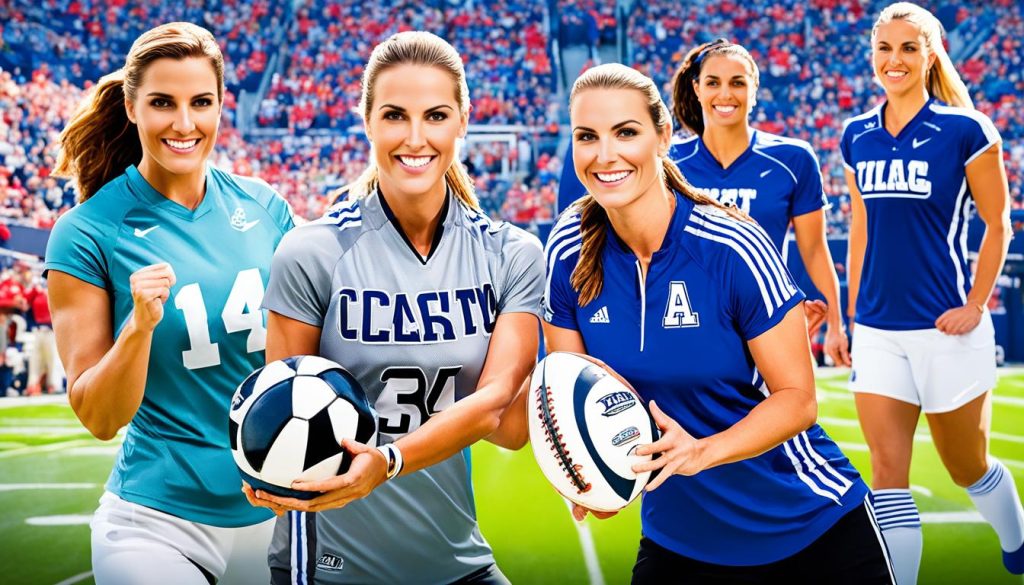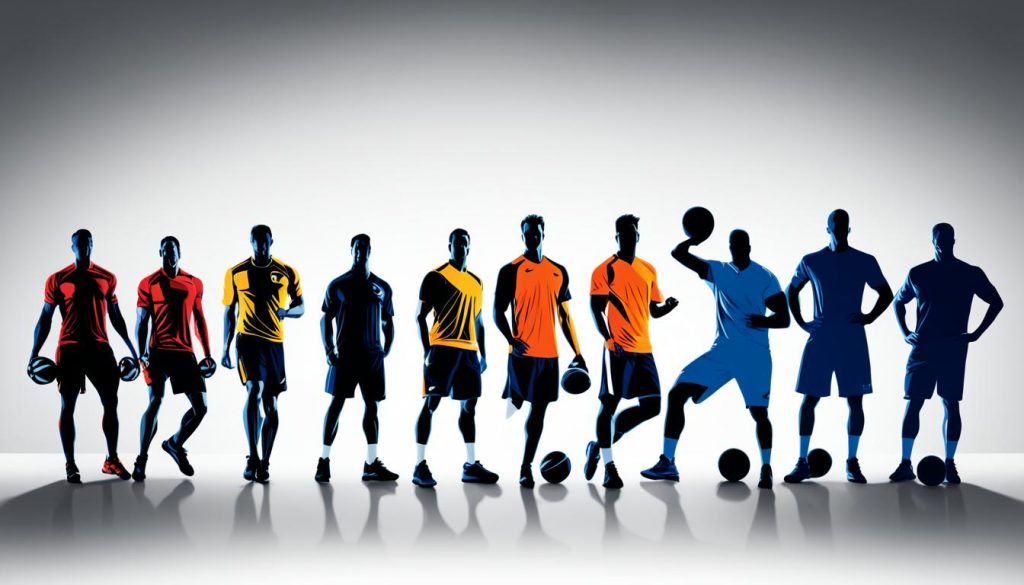The sports industry in the United Kingdom has undergone a transformational change since the introduction of Lottery Funding in 1997. There are now over 40 Summer and Winter Olympic and Paralympic sports with established World Class Programmes (WCPs) that provide world-leading training and competition support to athletes with the potential to achieve global success. This has led to the creation of around 1,000 high performance sports jobs spanning a range of organisations across the UK, from National Governing Bodies to the Home Nation Institutes of Sport and central agencies like UK Sport, the British Olympic Association and British Paralympic Association.
Whether you aspire to specialise in a technical discipline like coaching or sports science and medicine, apply your management and leadership skills to developing programmes and teams, or work in one or multiple sports, the sports industry offers an exciting community and many different career options.
Key Takeaways
- The UK sports industry has undergone a transformative change since the introduction of Lottery Funding in 1997.
- There are now over 1,000 high-performance sports jobs across a range of organisations in the UK.
- Sports careers offer opportunities in technical disciplines, management and leadership, as well as administrative functions.
- The sports industry provides an exciting community and diverse career options for those with a passion for athletics.
- Roles in the sports industry can be deeply rewarding, contributing to the success of elite athletes and teams.
Introduction to the Sports Industry Job Market
The introduction of Lottery Funding in 1997 has led to a transformational change in high performance sport in Great Britain. Over 40 Summer and Winter Olympic and Paralympic sports now have established World Class Programmes (WCPs) in place that provide world-leading training and competition support to athletes with the potential to achieve success on the global stage. This has resulted in the creation of around 1,000 high performance sport jobs in sport, sports careers, athletic professions, sports industry employment, sporting vocations, sports job opportunities, careers in athletics, professional sports roles, athletic job market, and sports-related occupations across a range of organisations operating right across the UK, from National Governing Bodies to the Home Nation Institutes of Sport and central agencies like UK Sport, the British Olympic Association and British Paralympic Association.
Transformational Growth Since Lottery Funding
The introduction of Lottery Funding in 1997 has been a driving force behind the significant growth and development of the sports industry in the United Kingdom. This transformational change has led to the establishment of World Class Programmes (WCPs) in over 40 Summer and Winter Olympic and Paralympic sports, providing world-class training and competition support to athletes with the potential to achieve global success.
Diverse Range of Sports Careers
The sports industry offers a diverse range of career options, whether you aspire to specialise in a technical discipline like coaching or sports science and medicine, apply your management and leadership skills to developing programmes and teams, or work in one or multiple jobs in sport, sports careers, athletic professions, sports industry employment, sporting vocations, sports job opportunities, careers in athletics, professional sports roles, athletic job market, and sports-related occupations.
Types of Jobs in Sport
The sports industry in the UK offers a diverse range of job opportunities, catering to a wide array of interests and skillsets. From technical roles in coaching and sports science to management and leadership positions, as well as administrative and support functions, there are ample options for those seeking a career in the dynamic world of sports.
Technical Roles: Coaching and Sports Science
The technical roles in coaching and sports science involve specialising in areas such as athlete development, performance analysis, and sports medicine. These professionals work closely with elite athletes and teams, leveraging their expertise to help them achieve their full potential. Whether you aspire to become a highly skilled coach, a sports scientist focused on optimising athlete performance, or a sports medicine specialist dedicated to injury prevention and rehabilitation, the sports industry provides a rewarding path for those with a passion for the technical aspects of the field.
Management and Leadership Positions
In addition to the technical roles, the sports industry also offers a range of management and leadership positions. These focus on programme and team development, strategic planning, and operational management within sports organisations. Individuals with strong leadership abilities, strategic thinking, and a deep understanding of the sports landscape can thrive in these roles, contributing to the overall success and growth of their respective sports or organisations.
Administration and Support Functions
The sports industry also requires a diverse range of administrative and support roles, including event management, marketing, communications, and business operations. These positions are essential for the smooth functioning of sports organisations, ensuring that the technical and management aspects are complemented by efficient administrative support. Individuals with strong organisational skills, attention to detail, and a keen understanding of the sports business can find fulfilling careers in these support functions.
| Job Type | Key Responsibilities | Required Skills |
|---|---|---|
| Coaching |
|
|
| Sports Science |
|
|
| Management and Leadership |
|
|
| Administration and Support |
|
|
Jobs in Sport: A Thriving and Rewarding Career Path
The sports industry in the UK offers a thriving and rewarding career path, with job opportunities available across the country. From the UK Sport headquarters in London to the Home Nation Institutes of Sport in Scotland, Wales and Northern Ireland, as well as the various National Governing Bodies and sports organisations based throughout the UK, there are numerous options for those looking to pursue a career in sport.
Opportunities Across the UK
These sports-related occupations often involve supporting the development and success of elite athletes and teams, whether through coaching, sports science and medicine, programme management, or administrative support. Working in the athletic job market can be a deeply fulfilling experience, as you contribute to the achievements of high-performing sportspeople and help inspire the nation through Olympic and Paralympic success.
Supporting Elite Athletes and Teams
The sporting vocations available in the UK’s sports industry range from technical roles in athletic professions to management and leadership positions, as well as administrative and support functions. These sports careers play a crucial role in nurturing the talent and potential of professional sports roles, ensuring that jobs in sport and the sports-related occupations contribute to the overall success of the nation’s athletic endeavours.
Paths to a Career in Sports
The sports industry in the UK offers a diverse array of career opportunities, each with its own educational and professional requirements. Many roles, such as coaching and sports science, may necessitate specific qualifications and certifications, while management and leadership positions often call for a background in business, sports management, or a related field.
Educational Requirements
Aspiring professionals in the sports industry can pursue a range of educational paths to prepare for their desired careers. Those interested in technical roles like coaching or sports science may require specialised degrees or certifications, such as a degree in sports science, exercise physiology, or a coaching qualification from a governing body. For management and leadership positions, a background in business, sports management, or a related discipline is often preferred.
Gaining Practical Experience
In addition to educational qualifications, gaining practical experience through internships, volunteering, or entry-level roles is crucial for building the necessary skills and network to progress in a sports-related career. These opportunities allow individuals to apply their knowledge in real-world settings, develop essential competencies, and establish connections with industry professionals.
Networking and Professional Development
Networking with industry professionals, attending conferences and workshops, and continuously developing one’s skills through ongoing training and education can further enhance one’s prospects and opportunities in the thriving UK sports job market. This commitment to professional development demonstrates a passion for the industry and a willingness to grow and adapt to the evolving needs of the sector.
By exploring the various pathways to a career in sports, aspiring professionals can find the most suitable route to realise their ambitions and contribute to the success of the UK’s thriving sports industry.

Conclusion
The sports industry in the United Kingdom has undergone a remarkable transformation since the introduction of Lottery Funding in 1997, leading to the creation of around 1,000 high-performance sport jobs across a range of organisations. Whether your passion lies in coaching, sports science, management, or administrative support, the sports industry offers a thriving and rewarding career path with diverse opportunities across the country.
By gaining the necessary qualifications, practical experience, and professional development, individuals can find their dream job in the exciting world of sports and contribute to the success of elite athletes and teams, inspiring the nation through Olympic and Paralympic achievements.
With a wide range of sports-related occupations and athletic professions available, the sports industry employment in the UK offers a vibrant and rewarding career in athletics for those passionate about sporting vocations and jobs in sport.
FAQ
What is the state of the sports industry job market in the UK since the introduction of Lottery Funding?
The introduction of Lottery Funding in 1997 has led to a transformational change in high performance sport in Great Britain. Over 40 Summer and Winter Olympic and Paralympic sports now have established World Class Programmes (WCPs) in place that provide world-leading training and competition support to athletes with the potential to achieve success on the global stage. This has resulted in the creation of around 1,000 high performance sport jobs across a range of organisations operating right across the UK, from National Governing Bodies to the Home Nation Institutes of Sport and central agencies like UK Sport, the British Olympic Association and British Paralympic Association.
What are the different types of jobs available in the UK sports industry?
The sports industry offers a diverse range of career options, whether you aspire to specialise in a technical discipline like coaching or sports science and medicine, apply your management and leadership skills to developing programmes and teams, or work in one or multiple sports. Technical roles in coaching and sports science involve specialising in areas such as athlete development, performance analysis, and sports medicine, while management and leadership positions focus on programme and team development, strategic planning, and operational management. Administrative and support functions cover a diverse range of roles, including event management, marketing, communications, and business operations.
Where are the job opportunities in the UK sports industry located?
The sports industry in the UK offers job opportunities across the country. From the UK Sport headquarters in London to the Home Nation Institutes of Sport in Scotland, Wales and Northern Ireland, as well as the various National Governing Bodies and sports organisations based throughout the UK, there are numerous options for those looking to pursue a career in sport.
What are the educational and professional requirements for a career in the sports industry?
There are various pathways to pursue a career in the sports industry, each with its own educational and professional requirements. Many roles, such as coaching and sports science, may require specific qualifications and certifications, while management and leadership positions often call for a background in business, sports management, or a related field. Gaining practical experience through internships, volunteering, or entry-level roles is also crucial in building the necessary skills and network to progress in a sports-related career.
How can one enhance their prospects and opportunities in the UK sports job market?
Networking with industry professionals, attending conferences and workshops, and continuously developing one’s skills through ongoing training and education can further enhance one’s prospects and opportunities in the thriving UK sports job market. By gaining the necessary qualifications, practical experience, and professional development, individuals can find their dream job in the exciting world of sports and contribute to the success of elite athletes and teams, inspiring the nation through Olympic and Paralympic achievements.



